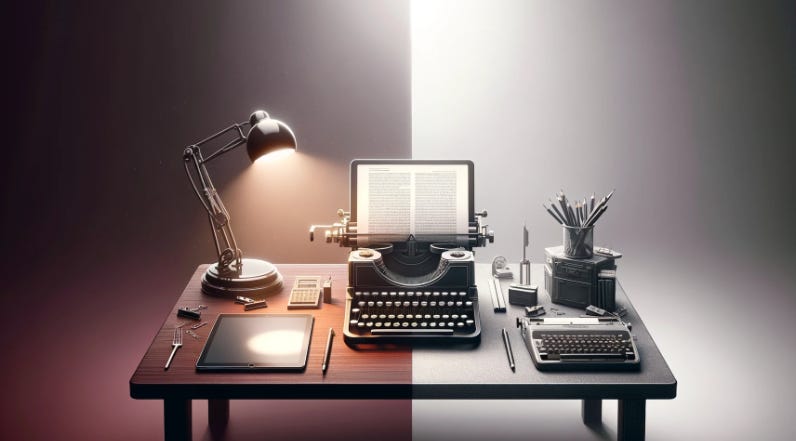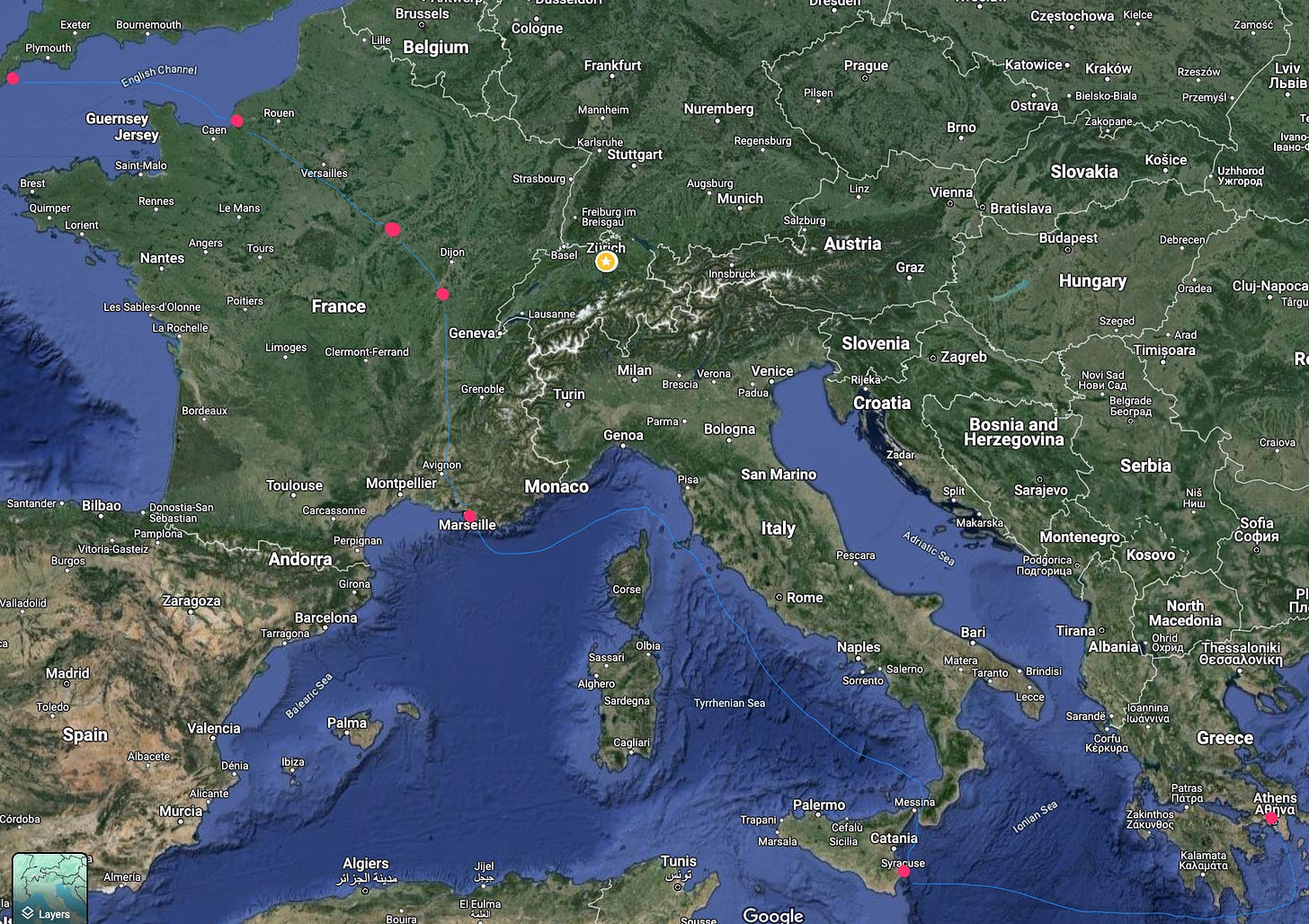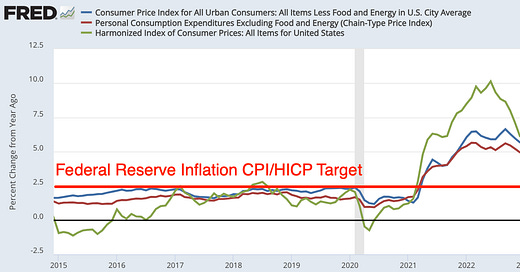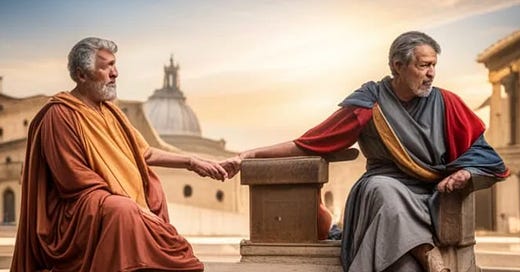
Are Editors Useful? Noah Smith Says: NO!!
Is it now time to disintermediate the editorial process? &, if so, for how long has this been true?...
Is it now time to disintermediate the editorial process? &, if so, for how long has this been true?...
In my experience:
About one editor in twenty is a true genius.
About one editor in ten is useful.
About thirteen editors in twenty cause delays and extra work, while having no net effect on the quality of what is ultimately published—their good suggestions are counterbalanced by the bad requirements they impose.
About three editors in twenty are harmful—about as harmful as the good editors are useful.
And about one editor in twenty wants to make the piece theirs, or their bosses’, and it would have been better and easier for everyone if they had just written the peace from the beginning. (Save, perhaps, for the money they pay you to have your name in the “author” slot rather than theirs.
It appears that Noah Smith agrees with me—and not as a lurker in email either:
Noah Smith: The Biggest Advantage of Independent Op-Ed Writers: ‘I enjoyed writing for Bloomberg, but writing for Substack is a lot better… a much bigger readership… more content… [that] in my personal opinion (and the opinions of many readers)… is higher-quality…. Independent op-ed writers… have one huge advantage over op-ed writers at publications: They don’t have editors.… For most of my time at Bloomberg… was fortunate enough to have an excellent editor, Jim Greiff… [and] an excellent executive editor, David Shipley…. Towards the end of my tenure at Bloomberg… an additional layer of approval was added to the pitching process… new executive editors started pushing back… Jim Greiff was transferred… and then fired, which was an absolutely terrible decision… I found myself spending many hours each week on the pitching process, but only able to publish three things a week instead of my usual five. Quality definitely did not improve… <https://www.noahpinion.blog/p/the-biggest-advantage-of-independent>
Noah has now spent fifteen years at this rodeo. He strongly holds to his conclusion that the advantages of not having an editor outweigh the disadvantages, at least for most editors, and for most skilled writers.
There appear to Noah to be only three big advantages of having an editor:
An editor comes with a publication readership and a marketing team, while an independent has to find and attract their own audience.
Editors can sometimes improve writing by fixing organizational and level issues that writers struggle with, either because the writers are experts who are not skilled at writing, or because the writers know too much and re too close to the subject.
Independent writers face income volatility as subscriptions go up and down, unlike salaried publication writers.
I reject Noah’s (3): Salaried publication writers face slower-moving but equal long-run income volatility. Perhaps they face greater long-run volatility, as their readers may well not be able to find them at all after they are fired from their publication staff. And, these days, most writers-with-editors are not salaried. Thus the real question is: are (a) the publication readership and the marketing team plus the extra pre-publication eyes on the piece worth (b) the delays and the extra work?
I think you could argue back and forth about the typical balance between the (a) factors and the (b) factors. And you would have to say that there is wide variation—that sometimes editors are very good things and sometimes bad things.
But Noah also puts his finger on what I regard as a more important effect of having an editor: the bandwidth of the information channel from readers back to the writer is greatly degraded by the editor’s existence. As Noah puts it:
Noah Smith: The Biggest Advantage of Independent Op-Ed Writers: ‘Editors prevent writers from finding product-market fit…. Writers… need to see the readership stats…. Writers don’t automatically know which topics readers want to see them write about, and neither do editors. Finding that out requires a process of trial and error. Running every idea through a gauntlet of editors prevents writers from exploring the space of what their readers might like. This limits their audience growth and their growth as a writer…. When you have to go through an editor, your editor becomes your audience. Instead of writing for your readers, you’re writing for one to three corporate higher-ups. Inevitably, this leads you to shift your topics and your argumentation toward pleasing that small set of middlemen, instead of the real end user.… Voice… allows writers to differentiate themselves, instead of… bland forgettable cookie-cutter sameness…. It increases a sense of rapport between the writer and the audience…. The most consistent thing that editors do… is to try to remove all elements of voice…. Editing inhibits the stylistic component of product-market fit for opinion writers, in much the same way that it inhibits product-market fit in terms of topic choice… <https://www.noahpinion.blog/p/the-biggest-advantage-of-independent>
Dan Davies has an imminent forthcoming—perhaps by now it is newly out—book, The Unaccountability Machine, on the vastly underinfluential discipline of cybernetics, which is, in Norbert Weiner’s words “control and communication in the animal and the machine”.
In order for people to DO THE JOB productively and coöperatively, whatever THE JOB happens to be, they need to receive and transmit enough information to and properly incentivize others in the value web so that everyone can figure out how to and wants to shift what they are doing to maximize the system-wide productive efficiency of the process. But, given human limitations on attention and thinking power, too much information can be as bad as too little, or as the wrong information.
Back in the year -460, to get the tons of tin needed to make the bronze for the great statue of Athene Promakhos—Athena Fighting-in-Front—that stood atop the High City of Athens from ca. -456 to ca. 465, only one piece of information needed to be transmitted from Athens to six places. What were those places?
The Great Harbor of Syracusa in Sicily where the boats from Massilia at the mouth of the Rhone were unloaded and the boats for Athens loaded.
The port of Massilia where the boats coming down the Saône-Rhône were unloaded and the boats for Syracuse loaded.
The portage-end site at what is now Chalon-sur-Saône on the Saône where goods transported overland from the Yonne-Seine arrived.
The portage-beginning site at what is now Auxerre on the Yonne Riever where goods transported upriver from what is now Le Havre arrived.
What is now Le Havre, where boats crossing the English Channel would arrive with goods for transshipment up the Seine.
At the pithead of the tin mines of Cornwall.
What was the piece of information? That the market price of tin at the next link in the long transport chain from Cornwall to Athens was unusually high.
But most of the time we need much more information than just a market price at the next stage of the goods-transformation or the goods-transportation process. Most of the time we need more information, and the right information, and not too much information, in a form that those who must process it can handle.
I find it absolutely fascinating that Noah Smith is convinced that, with modern information technologies, sheer trial-and-error with no intermediaries but only a direct email link between newsletter writers and newsletter subscribers produces a much better information-dissemination communication system than does the interposition of editors with the assembled marketeers and bosses behind them.
Is he right? In my experience he, for the most part, is. While I have encountered and benefitted massively from some truly excellent editors, they have been relatively rare.
I suppose that this is because most of them have never learned the cybernetics that they would need to know to understand what their job really is…
References:
Davies, Dan. 2024. The Unaccountability Machine: Why Big Systems Make Terrible Decisions—& How The World Lost its Mind. London: Profile Books. <https://profilebooks.com/work/the-unaccountability-machine/>.
Smith, Noah. 2024. "The Biggest Advantage of Independent Op-Ed Writers." Noahpinion. March 28. <https://www.noahpinion.blog/p/the-biggest-advantage-of-independent>.
Walton, Jo. 1998. “The Lurkers Support Me in Email”. May 16. <http://www.jowaltonbooks.com/poetry/whimsy/the-lurkers-support-me-in-email/>.
Weiner, Norbert. 1948. Cybernetics, or Control and Communication in the Animal and the Machine. Cambridge: M.I.T. Press <https://archive.org/details/cyberneticsorcon0000wien>.
Wikipedia. 2024. “Athena Promachos”. Accessed March 29. <https://en.wikipedia.org/wiki/Athena_Promachos>.


















Editors who rewrite are annoying. They take the author's voice away and often insert their own spin. Having said that, we all need editors. There are times I have read something about ten times and yet errors persist. I can't say why. Lol! makes me look like I'm in in denial. Another pair of eyes see the errors right away. The trick might be to revisit the writing a week later, but one usually doesn't have that much time.
I spent a good part of my post-research career doing technical writing and editing in addition to drug safety and regulatory affairs activity. There is no question in my mind that editors are critical to clear expository writing. I well remember having to take 'Subject A' aka freshman composition at UC Santa Barbara back in the mid 1960s as I did not get a high enough score on the SAT English Achievement test. That semester course was invaluable to teaching me how to write clearly (along with the one book that should be on every writer's shelf, Strunk and White's "The Elements of Style."
If you do enough writing and re-writing (editing), it becomes second nature, and your writing is much better as a result. I'm an avid reader of books, blogs and assorted other stuff and can quickly tell if something has been well edited. Maybe AI can help, I'm agnostic on this until there is more data but friendly old Microsoft has put a bunch of new things in all their apps (including Edge which I'm using to write this response) and it's quite intriguing.
There is no better skill than writing well.